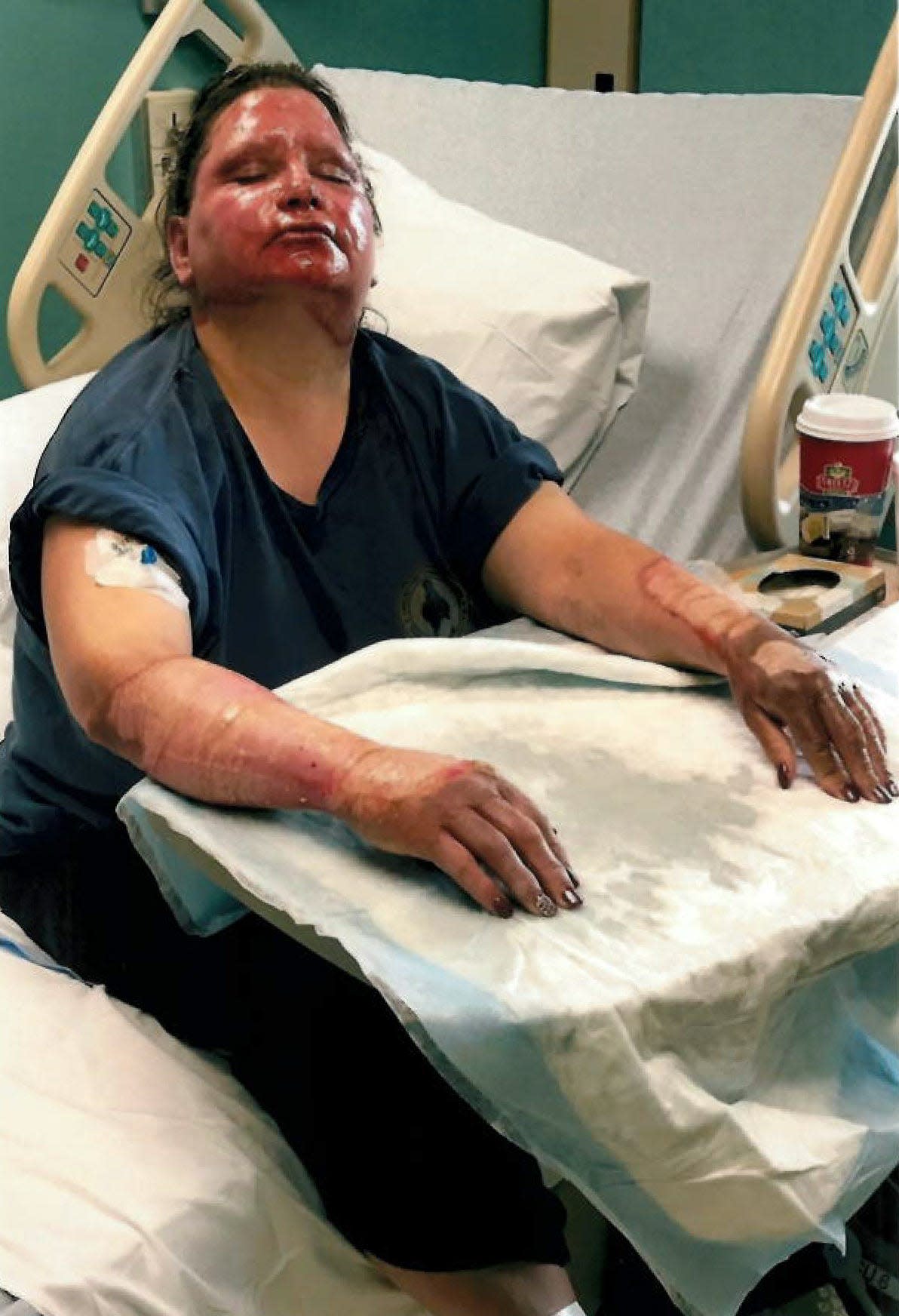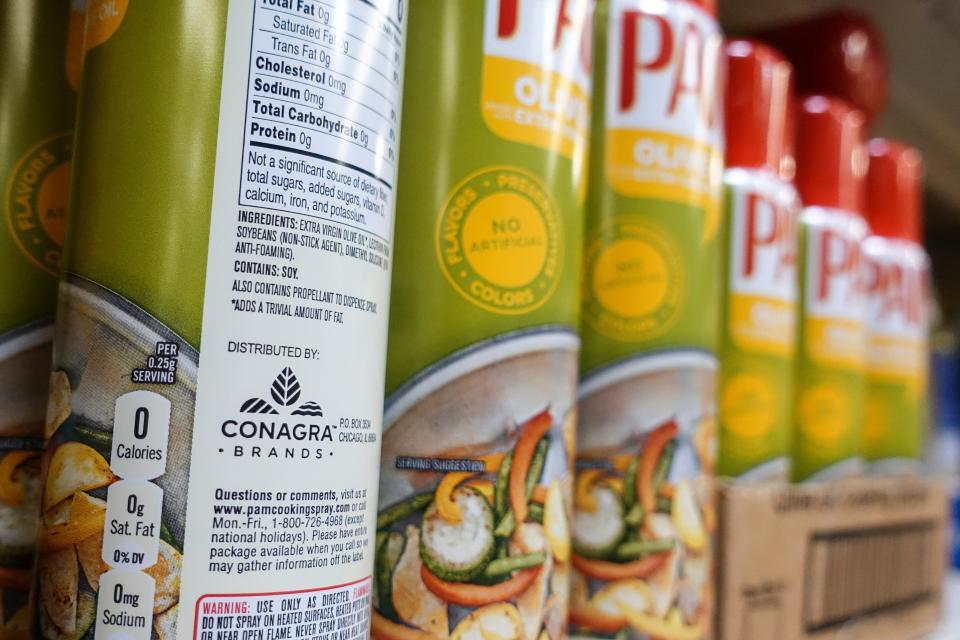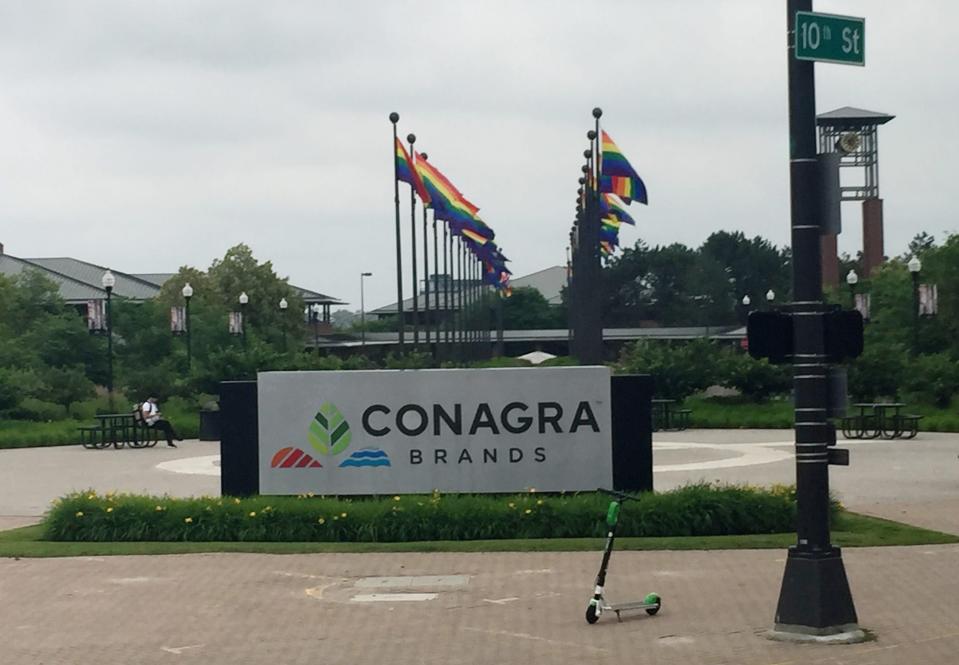$7.1 million awarded to Pennsylvania woman burned in cooking spray explosion

An Illinois jury has awarded $7.1 million to a Pennsylvania woman burned in a kitchen accident involving cooking spray, and her attorneys say more than 50 similar cases are pending.
Tammy Reese was working as a cook in a social club in 2017 when a can of Swell cooking spray "over-pressurized and exploded" in the club's kitchen in Shippensburg, located in southern Pennsylvania about 40 miles southeast of Harrisburg, her attorneys said in a news release. Reese caught fire and sustained deep burns to her face, arms and hands, her attorneys said.
“Nothing can begin to describe the excruciating pain and fear I felt that day," Reese said in a statement on Wednesday, two days after her 2019 lawsuit against Chicago-based Conagra was settled.
Conagra, which makes Swell and other popular cooking sprays including Pam, told USA TODAY that it stands behind its products.
Here's what you need to know about Reese's case and more than 50 others making their way through the court system:
More: 8 people allegedly disfigured by exploding cans of cooking spray like Pam sue Conagra
What cooking spray is involved in the lawsuits?

Fifty-six cases involving 61 injured plaintiffs have been filed against Conagra involving spray cans that were made between 2011 and 2019, Reese's attorneys said.
The can design had a venting system that had a lower threshold for heat than previous versions, one of Reese's attorneys, J. Craig Smith, told the Associated Press.
That design typically was used for cans of more than 10 ounces of cooking spray sold at wholesale retail chains under the Pam label or various generic store brands, the news release said.
"When I learned that countless other people had experienced what I went through and that no recall was ever made, I felt angry," Reese said. "I hope that they can get justice for the pain Conagra caused them to live with for the rest of our lives."
Smith told the AP that scar tissues from the accident continues to impair Reese's movement six years later.

More: Lawsuits mount against Procter & Gamble over cancer-causing chemical in Old Spice, Secret sprays
Why didn't Conagra issue a recall?
Even after accidents involving the new can design began happening, Conagra didn't issue a recall, attorneys said, adding that the can design was an effort to save money.
“Overlooking the clear and present risk that their product caused to their customers just so they can turn a profit is one of the most shocking examples of corporate negligence that I’ve seen," one of Reese's other attorneys, Pete Flowers, said in a statement.
"While these defective cans are no longer being manufactured, consumers should still be aware that they are on the shelves and they can permanently harm you,” Flowers said.
Smith said that Conagra "recklessly put countless people in danger when it became aware of the clear danger posed by these defective spray cans."
The law firms representing the 56 plaintiffs in the other Conagra lawsuits are Connecticut-based Koskoff Koskoff & Bieder and Illinois-based Meyers & Flowers,

What does Conagra say?
Conagra said in a statement to USA TODAY on Thursday that the company disagrees with the jury's verdict.
"We continue to stand by our cooking spray products, which are safe and effective when used correctly, as instructed," the company said. "In addition, the cans in question in this litigation haven’t been available for more than four years ... We are evaluating our legal options, including appeal."
Conagra Brands is the parent company of many high-profile food brands including Marie Callender’s, Reddi-wip, Swiss Miss, Hunt’s, Chef Boyardee and Slim Jim.
Contributing: The Associated Press
This article originally appeared on USA TODAY: Jury awards $7.1 million to Pennsylvania woman burned by cooking spray

